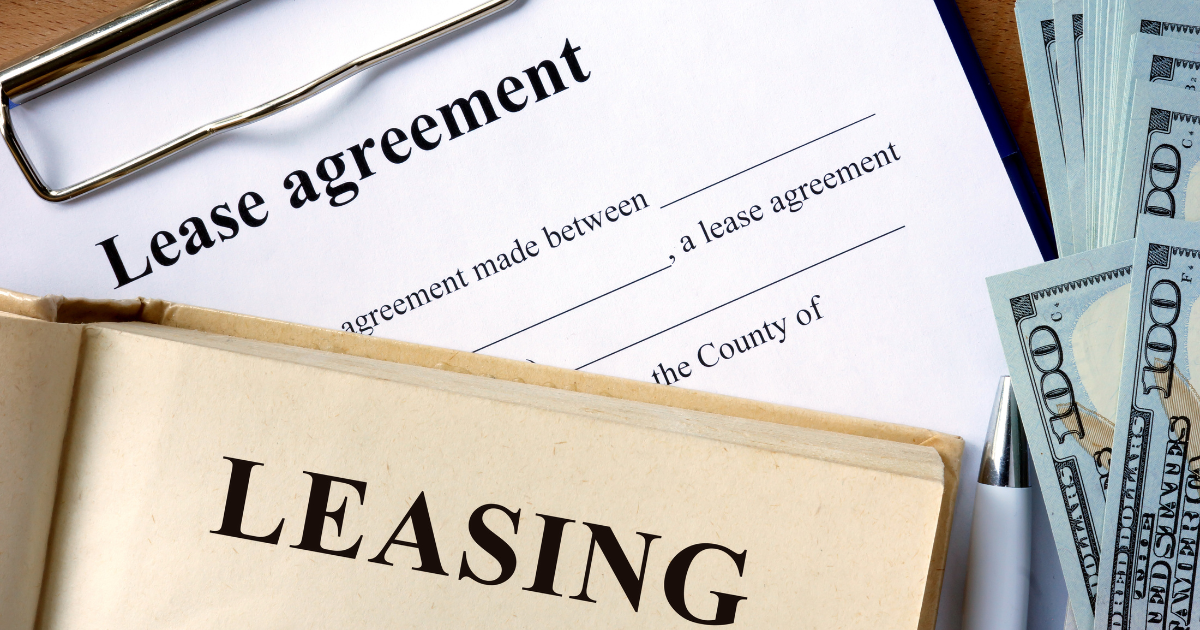Landlord Attempt To Terminate Option Contract ‘Invalid’
Drafting a lease agreement is no easy task. Although most landlords possess an upper hand in lease negotiations, they do not always protect...
4 min read
Alan Nochumson : Nov 27, 2006 9:00:00 AM

“Just pay your rent on time.” That is what every commercial tenant is told during lease negotiations when the tenant inevitably quibbles about language included in the lease which clearly favors the landlord should the tenant commit a lease default.
In Atlantic LB, Inc. v. Vrbicek, the Superior Court of Pennsylvania took this one step further by refusing to evict tenants who eventually fulfilled their monetary obligations to the landlord under the lease.
In Atlantic LB, Inc., a husband and wife entered into a lease purchase agreement with a corporate landlord whereby they agreed to use the premises as a restaurant. The lease required the tenants to make monthly rental and tax payments to the landlord.
Under the lease, the tenants were allowed to cure any monetary default committed under the lease within ten days after receipt of written notice of nonpayment from the landlord. The tenants were, however cautioned that “time [wa]s of the essence in regard to the performance of the duties and obligations of the parties.” Moreover, the lease specifically provided that the tenants’ right to purchase the premises from the landlord ceased if the tenants defaulted under the terms of the lease.
Only a year into the lease, the tenants began failing to make their monthly rental and tax payments on time due to financial difficulties. The parties then entered into an oral agreement whereby, until business improved for the tenants, they would pay rent semi-monthly and the delinquent taxes over six months or until the taxes were paid in full.
Within months of reaching this temporary arrangement, the tenants failed to make payments again. The landlord then sent written notice of nonpayment to the tenants for the back rent they owed under the lease. In the notice, the landlord gave the tenants the requisite ten days to cure the monetary defaults. Since the notice was addressed to the wrong ZIP code, the tenants did not receive the notice until after the 10-day cure period had already expired. Nevertheless, with the exception of some minor disputed fees, the tenants paid the landlord all of the amounts they owed under the lease.
During the next two months, the tenants failed to pay rent. The landlord then sent a second notice of nonpayment to the tenants. They did not cure this monetary default until after the landlord had already filed a complaint for confession of judgment in ejectment against them. The tenants then filed a petition to open the confessed judgment, which was granted by the trial court.
During the litigation, the tenant, in apparent connection with the potential sale of their business, attempted to exercise their right to purchase the premises as provided for in the lease. The landlord refused to transfer the premises to the tenants per the purchase option, however, claiming that the tenants had lost their right to exercise the option as a result of the repeated monetary defaults they committed under the lease.
The tenants eventually obtained a non-jury trial verdict in their favor. Among other things, the trial court found that the tenants had substantially cured the monetary defaults committed under the lease, the lease was still in full force and effect under the doctrine of substantial performance, and they thus had the right to exercise the purchase option contained within the lease.
The landlord appealed the trial court’s ruling to the Superior Court of Pennsylvania. The appeal centered on whether the doctrine of substantial performance prevented the landlord from evicting the tenants from the premises and from refusing to transfer the premises to the tenants in accordance with the purchase option.
The doctrine of substantial performance is “intended for the protection and relief of those who have faithfully and honestly endeavored to perform their contracts in all material and substantial particulars.” As a result, Pennsylvania courts do not enforce forfeiture for nonpayment of rent “when the contract has been carried out or its literal fulfillment has been prevented by oversight or uncontrollable circumstances.”
With that in mind, the Superior Court affirmed the trial court’s ruling, thereby rejecting the landlord’s argument that the trial court erred when it refused to evict the tenants in spite of their “chronic non-payment and late payment of rent and other money owed.”
The Superior Court held that the doctrine of substantial performance applied given the controlling language of the agreement. Although the tenants repeatedly made late rental and tax payments, the Superior Court concluded that they “were not in actual ‘default’ as defined in the lease, although they came dangerously close to default.”
According to the Superior Court, except for small disputed sums, the tenants cured the arrearages within 10 days upon receiving each notice for nonpayment, as per the terms of the lease. The Superior Court thus believed when the case came before the court, the tenants had substantially complied with their obligations under the lease. Because the lease continued in full force and effect, the Superior Court concluded that the tenants’ option to purchase the premises, likewise, remained viable.
The ramifications of Atlantic LB, Inc. in future landlord-tenant disputes may be surprisingly limited. In dicta, the Superior Court stated that its decision in Atlantic LB, Inc. should not “be used indiscriminately as authority in all commercial leases for nonpayment of sums due.” Instead, the Superior Court “emphasize[d] the importance of careful attention to how these agreements are drafted and to the terms of the agreements as drafted.”
This part of the decision seems to infer that the Superior Court would have reached a different conclusion had there been no cure provision in the lease. As such, attorneys representing landlords may think twice before agreeing to the inclusion of this type of lease provision in future leases.
The Superior Court also distances itself from the decision by stating that its role on appeal was to determine whether the findings of the trial court were supported by competent evidence. Rather than fully embracing the trial court’s findings of fact, the Superior Court instead concluded that the evidence was sufficient to sustain the trial court’s decision to uphold the tenants’ rights under the lease.
In reaching its conclusion, the Superior Court ultimately ignored evidence showing that the tenants failed to cure the monetary defaults within the time frame set forth in the lease.
The tenant was excused from curing the monetary default contained within the first notice due to the notice being mailed to the wrong ZIP code, which apparently caused a delay in its arrival to the tenants.
Since the notice was sent via regular mail, the landlord had no way to prove when the tenants actually received the notice. This only reinforces the point that attorneys representing landlords should always send these types of notices by certified mail or some other form of delivery where the landlord can establish without a doubt when the tenant received notice.
As for the second notice, it is unclear as to whether the tenants substantially paid the amounts due under the lease before or after the landlord obtained the confessed judgment. According to the Superior Court, the landlord pointed out that the payment was made after the court filing and well beyond the cure period. If that is the case, the Superior Court’s clearly abused its discretion by refusing to overturn the trial court’s ruling.
Any way you slice it, the Superior Court may have created a dangerous precedent which landlords across the commonwealth may soon regret.
Reprinted with permission from the November 27, 2006 edition of The Legal Intelligencer © 2006 ALM Media Properties, LLC. All rights reserved. Further duplication without permission is prohibited. For information, contact 877-257-3382, reprints@alm.com or visit www.almreprints.com.

Drafting a lease agreement is no easy task. Although most landlords possess an upper hand in lease negotiations, they do not always protect...

Most developers would rather have root canal surgery without Novocain than deal with local governments during the planning stages of a development...

Wilson v. Plumstead Township Zoning Hearing Board is a cautionary tale on why landowners should not downplay zoning restrictions encumbering their...